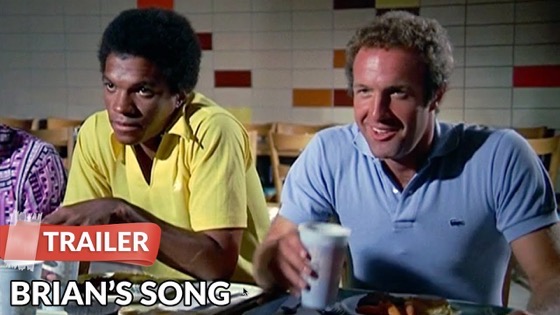I was pleased to be asked to join the Editorial Team for California History journal and am always impressed by the work of editor Mary Ann Irwin when each new issue comes out.
As their expert on the popular culture of our State I have the chance to vet articles in that area – and to review books that cover it as well. For this issue there was yet another new request – review a podcast “Stories from the Epicenter” that explores the experience and memory of the Loma Prieta Earthquake through oral history records and interviews with current residents of Santa Cruz and Watsonville. A co-creation of the University Library at UC Santa Cruz, the Santa Cruz Museum of Art and History, and Santa Cruz Public Libraries I found it fascinating to hear. — Rosanne
Podcast: Play in new window | Download
Subscribe: RSS
Daniel Story, series producer. Stories from the Epicenter. University Library at the University of California, Santa Cruz, Santa Cruz Museum of Art and History, and Santa Cruz Public Libraries.
Podcast website: https://library.ucsc.edu/StoriesFromTheEpicenter
Listen on major podcast platforms or at https://anchor.fm/storiesfromtheepicenter
Podcast companion resource: https://arcg.is/04mPTGStories from the Epicenter is a ten-part documentary podcast that explores the experience and memory of the Loma Prieta Earthquake through oral history records and interviews with current residents of Santa Cruz and Watsonville. Coproduced by the University Library at the University of California, Santa Cruz, in partnership with the Santa Cruz Museum of Art and History and Santa Cruz Public Libraries, this production shows its pedigree across the episodes sampled by this reviewer, herself a fan of such high-caliber podcasts as BBC Radio 4’s In Our Time and Thinking Allowed and popular culture podcasts such as Today I Found Out and The Dinner Party Download.
With so many new forms of distribution, the very definition of “podcast” needs to be reconsidered. Podcasts first emerged when MTV host/announcer Adam Curry wanted a self-loading iPod, and computer programmer Dave Winer invented the RSS feed, a computer program that allowed users to keep track of and subscribe to many different websites. Together Curry and Winer developed a way to allow RSS feeds to carry audio and video files, so that users could download files automatically to their iPods each time they synched to a computer. Cell phones with broadband connectivity negated much of the technical need for official podcasts, but the many eclectic early podcasts whetted audience desire for independent, non-gate-kept productions. Now the term refers broadly to radioand television-style shows delivered over the Internet. Audiences can subscribe to podcasts or find them on YouTube, which emerged at the same time as RSS feeds to offer yet another model of distribution.
As with all new forms of media, once established outlets began using them, they naturally gained more respect. Now many history-based podcasts can be found, like the esteemed British Library’s Curator’s Corner and Curators on Camera, or American History Tellers from Wondery, the network behind Tides of History and Fall of Rome.
On October 17, 2020, Stories from the Epicenter released ten episodes recorded in the aftermath of the Loma Prieta earthquake, a magnitude 3.5 earthquake that occurred nine miles from San Francisco at 5:04 P.M. on October 17, 1989. Damage included the collapse of a section of the double-deck Nimitz Freeway in Oakland that killed forty-two people. Three more were killed by the collapse of buildings along the Pacific Garden Mall in Santa Cruz. While many Californians felt the effect of the earthquake as it began, audiences elsewhere also learned of it almost immediately through the 1989 World Series, then airing live from Candlestick Park. The video signal broke up just after sportscaster Al Michaels announced the event.
The episodes follow chronologically from the opening, “Pacific Garden Mall,” which covers the growth of the area in the years before the quake, through “The First Thirty Days,” which involves the emergency response in Santa Cruz, and then to “The Politics of Rebuilding.” Among the ten main episodes, series producer Madeline Maria’s “The Kids Are Alright” stands out for looking through the eyes of those who were children at the time. Recording the voices and memories of teenagers paints the event in a particularly emotional way that stays with the listener long after the twenty-six-minute segment ends.
Aaron Zachmeier, fifteen at the time, recalls how his five-year-old sister stayed under a table for a few hours after the quake while he went skateboarding around town, surveying the damage. “It was exciting and interesting to watch things change … and when they settled down it was a disappointment.” Zachmeier felt he had discovered a magical place “that was then taken away from me, but maybe that was perfect because magical places don’t persist”—because, to his eyes, media outlets ignored Santa Cruz and instead focused on San Francisco. In an aside that will be familiar to contemporary readers experiencing the COVID-19 pandemic, Zachmeier admits that “it was weirdly joyful to experience normal life being put on hold, which created an interesting space in which to exist.”
Another story Maria researched concerned a homeless nine-year-old who recalled waking up in her parents’ tent and watching the sidewalk move in waves. The segment ends with an interview with Kevin Waggoner, a six-year-old during the earthquake, whose father was the single park ranger assigned to the Forest of Nisene Marks State Park, the actual epicenter of the earthquake. Kevin had the chance to visit the epicenter with his father because his Campfire Kids group wanted a tour of the spot, to which his father agreed. His father had been in the park during the earthquake and declared that it felt milder than in the more urban part of the city, illustrating how nature is better prepared than the built environment to withstand such temblors.
Also of interest is episode 7, “A Tale of Two Newspapers,” which follows the ways that such disasters affect professionals charged with documenting them in real time. Episode 8, “The Memory Remains,” focuses on bringing back some UC Santa Cruz graduates whose experiences were recorded right after the quake; producers asked them to listen to portions of their original testimonies and to comment on how their earlier thoughts survived the test of time. Each episode utilizes the vast variety of music from the area, including excerpts from “El Sonido de la Vida” by Silva de Alegria and “Cinema Pathetic” by Blue Dot Sessions.
While Stories from the Epicenter is reminiscent of an extended National Public Radio series focused on a very personal, very seismic, and very geographically specific event, the episodes somehow manage to be universal in their coverage of the emotions that all listeners likely connect to events experienced in their own homes. The benefit of such podcasts to historians is obvious. There is great value to such oral histories being available online to researchers, sparing them the expense of traveling to distant archives. The downside to podcasts, in some cases, is an “amateur” quality—but the same can often be said of radio, television, and other media. At a time when inclusivity is more important than ever, podcasts like these offer individuals the chance to share their voices and, simultaneously, to facilitate wide sharing of experiences, ideas, and emotions.
Well executed history podcasts like these suit our times perfectly.
Rosanne Welch
And of course you can check out the California History journal at your local library.


![01 Left Out Of The History Books from Concord Days: Margaret Fuller in Italy [Video]](https://rosannewelch.com/wp-content/uploads/2021/07/rmw-concord-day-2021-fuller-rome.jpg)
![08 Playing The Game… from Worry and Wonder | The Courier Thirteen Podcast | Episode # 29 [Video]](https://rosannewelch.com/wp-content/uploads/2021/07/rmw-courier-13-08.jpg)




![07 It’s Show Business…Not Show Art…from Worry and Wonder | The Courier Thirteen Podcast | Episode # 29 [Video]](https://rosannewelch.com/wp-content/uploads/2021/07/rmw-courier-13-07.jpg)

![06 How To Pitch To A Showrunner…from Worry and Wonder | The Courier Thirteen Podcast | Episode # 29 [Video]](https://rosannewelch.com/wp-content/uploads/2021/07/rmw-courier-13-06.jpg)